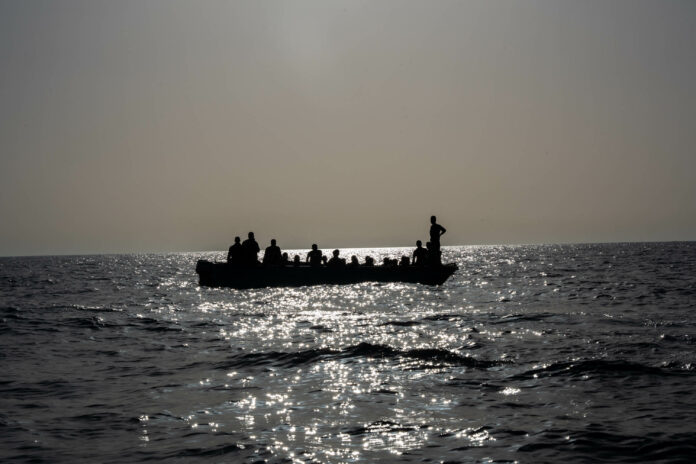On Sunday, the European Union (EU) signed an $8 billion aid package with Egypt in Cairo, aimed at curbing irregular migration across the Mediterranean Sea to Europe, as well as to help the North African state’s faltering economy and boost cooperation in the areas of border controls, trade, and security. There have been rising concerns that Egypt—where 9 million migrants live—could be flooded with more migrants from conflict-affected neighboring countries, who wish to make the journey to European shores.
Bolstering EU-Egyptian ties and Cairo’s struggling economy are all welcomed steps. But stemming the flow of irregular migrants from Africa into Europe demands more than the fortification of a country’s borders. It requires deciphering the true causes that push migrants to take the treacherous journey across the Mediterranean. I ask EU leaders to ponder why these migrants are risking their lives to seek refuge in other countries.
The dangerous turning point of political instability and rampant stagflation that Africa is in has been pushing Africans to migrate. There is an urgent need today to help Africans resolve their conflicts. After all, military coups flourished in Africa in 2023, with coups erupting in Niger and Gabon in July and August respectively; there was also an attempted coup in Guinea-Bissau in December. Prior to that, coups broke out in Mali (August 2020), Chad (April 2021), Guinea (September 2021), Sudan (October 2021), and Burkina Faso (January 2022). Most of these military takeovers happened in former French colonies in West and Central Africa, causing some to characterize it as the “coup belt” region.
Millions of Africans are now in need of humanitarian relief. In Ethiopia, more than 20 million people are in urgent need of food assistance. The situation is worse in Sudan, with the United Nations cautioning on March 15 that 5 million Sudanese are at risk of starvation. Since Sudan plunged into a largescale conflict in April, more than 4 million Sudanese fled their homes—with thousands of people reported killed or injured. There is an estimated 4 million Sundanese residing in Egypt.
MATIAS CHIOFALO/AFP via Getty Images
Only if you’re living in Africa can you feel its pain. Many African countries are today mired in economic quagmires, street protests, and fresh violence. Alas, extreme hunger is affecting children in Ethiopia, Sudan, the Democratic Republic of the Congo, Burkina Faso, Burundi, Madagascar, Lesotho, Niger, Guinea-Bissau, and Chad. These countries have entered a spiral of extreme conflict that is increasing the risk of starvation.
Three reasons are behind the eruption of conflicts in Africa, and they include internal problems, opportunism (as exhibited in flawed elections and corruption), and a colonial exploitation, which has been hindering Africa from escaping poverty. The ripple effects of the Russia-Ukraine war, and the lingering impacts from the COVID-19 pandemic, have also inflicted misery on many of Africa’s economically embattled nations and compounded the continent’s food insecurity. There is also concern that the Gaza war can result in people crossing into Egypt’s Sinai Peninsula through Rafah in which 1.5 million Palestinians are taking sanctuary.
In his 1963 masterpiece Africa Must Unite, Kwame Nkrumah, Ghana’s founding prime minister, wrote: “It’s impossible to separate the affairs of Africa from the affairs of the world as a whole.” Africa today is witnessing unprecedented shifts and challenges due to regional conflicts and economic stagnation, growing world instability, and rivalry between the West and East. These factors have compounded the dire economic situation in which many African countries are embroiled in.
Hunger and economic dependence on superpowers pose the biggest threat to Africans. African states have been accumulating external debt at a rapid pace, taking advantage of an abundance of low-cost international credit for budgetary and balance-of-payments support to help drive development plans, and for other purposes. Highly indebted African countries—those that fall victim to the debt-trap—are grappling to pay debt and encountering pressure to spend more amid collapsing currencies.
The political and economic grievances of Africans are so great that they can’t solve them alone. It is morally incumbent upon the Global North to assist Africans rise from their economic turmoil, which has been igniting conflicts. Rich countries should be more active in employing political strategies to foster peace among the conflicting factions in Africa, and this can be achieved through introducing debt relief initiatives that enable Africans to adopt effective development plans.
The future of an economically stable Africa that can feed its children all depends on how rapidly the international community will manage to rescue Africa from current debt crises. The trajectory of policy in Africa by the world’s leaders must change from being primarily focused on maintaining security to also include fighting hunger. For it is only by assisting Africans counter hunger can we insure the safety and security of Africa—and the world.
Mohamed El-Bendary is a freelance writer based in Egypt. His commentaries have appeared in major international media outlets and is the author of The “Ugly American” in the Arab Mind: Why Do Arabs Resent America?
The views expressed in this article are the writer’s own.
Uncommon Knowledge
Newsweek is committed to challenging conventional wisdom and finding connections in the search for common ground.
Newsweek is committed to challenging conventional wisdom and finding connections in the search for common ground.


